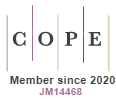A survey on machine learning algorithm usage in the audit of health plans
DOI:
https://doi.org/10.5585/rgss.v9i1.15296Keywords:
Health insurance, Audit, Machine learning.Abstract
Although health care providers have more than 47 million health insurance clients in Brazil, these companies still have processes that are manual. One of these processes is that of the medical audit that performs the analysis of each account with expenses that were incurred by the operator's beneficiary in any hospital, clinic or laboratory. Each account is reviewed to make sure that there is nothing outside the context of a surgery, examination or consultation. The costs of these audits are high and the outcome is varied and according to the auditor's individual knowledge. In addition to being a lengthy process, these bills will only be paid to those who provided the service after the auditors’ review which brings dissatisfaction to those awaiting payment. Manual execution of this process is susceptible to failure and fraud. In this context, Machine Learning algorithms are used to assist in the audit process in various areas of knowledge. Thus, this paper presents a survey on the application of Machine Learning algorithms in medical audits, analyzing which algorithms are most usedDownloads
References
Agência Nacional de Saúde Suplementar (2019). Dados e Indicadores do Setor. Recuperado em 24 de julho, 2019, de http://www.ans.gov.br/perfil-do-setor/dados-e-indicadores-do-setor.
Alpaydin, Ethem. (2016). Introduction to Machine Learning. MIT Press (MA); third edition.
Brasil (1998). Ministério da Saúde: Manual de Normas de Auditoria. Recuperado em 20 de julho, 2019, de http://bvsms.saude.gov.br/bvs/publicacoes/manual_normas_auditoria.pdf.
Bauder, Richard, A., Khoshgoftaar, Taghi M. (2016) A Probabilistic Programming Approach for Outlier Detection in Healthcare Claims. Proceedings of 15th IEEE International Conference on Machine Learning and Applications. ICMLA 2016, pp. 347–354.
Bauder, Richard, A., Khoshgoftaar, Taghi M. (2017) Medicare fraud detection using machine learning methods. Proceedings of 16th IEEE International Conference on Machine Learning and Applications. ICMLA 2017, vol. 2018-jan, pp. 858–865.
Bauder, Richard, A. (2018). Medicare Fraud Detection Using Random Forest with Class Imbalanced Big Data. Proceedings of 2018 IEEE 19th Int. Conference on Information Reuse Integrated Data Science. IRI 2018.
Bauder, Richard, A., da Rosa, Raquel C., Khoshgoftaar, Taghi M. (2018). Identifying Medicare Provider Fraud with Unsupervised Machine Learning. Proceedings of 2018 IEEE 19th Int. Conference on Information Reuse Integrated Data Science. IRI 2018, pp. 285–292, 2018.
Cassimiro, Jackson Cunha, André Macedo Santana, Pedro Santos Neto, Ricardo Lira Rabelo (2017). Investigating the Effects of Class Imbalance in Learning the Claim Authorization Process in the Brazilian Health Care Market. Proceedings of 2017 International Joint Conference on Neural Networks (IJCNN), vol. 2017-May, pp. 3265–3272.
Gao, Yongchang, Sun, Chenfei, Li, Ruican, Li, Qingzhong, Cui, Lizhen, Gong, Bin (2018). An Efficient Fraud Identification Method Combining Manifold Learning and Outliers Detection in Mobile Healthcare Services. IEEE Access, vol. 6, pp. 60059–60068.
Instituto de Estudos de Saúde Suplementar (2013). Guia da Saúde Sumplementar. Recuperado em 24 de julho, 2019, de http://documents.scribd.com.s3.amazonaws.com/docs/jwfnp1a4g3pcsuj.pdf.
Instituto de Estudos de Saúde Suplementar (2018). R$ 28 bilhões em fraudes e desperdícios. Recuperado em 24 de julho, 2018, de https://www.iess.org.br/?p=blog&id=745
Instituto de Estudos de Saúde Suplementar (2019). Beneficiários de planos médicos hospitalares. Recuperado em 24 de julho, 2019, de https://iessdata.iess.org.br/dados/bmh.
Minami, Bruno (2018). Sumário Executivo da Análise Especial do Mapa Assistencial da Saúde Suplementar no Brasil – Ano de 2018. Recuperado em 23 de agosto, 2019, de https://www.iess.org.br/cms/rep/sumapav3.pdf.
Mueller, John Paul, Massaron, Luca (2018). Aprendizado de Máquina para Leigos. AltaBooks, Rio de Janero.
Russel, Stuart, Norvig, Peter (2013). Inteligência Artificial. Ed. 3ª. Editora Campus, Rio de Janeiro.
Seo, Jiwon, Mendelevitch, Ofer (2017). Identifying Frauds and Anomalies in Medicare-B Dataset Proceedings of 2017 39th Annual International Conference of the IEEE Engineering in Medicine and Biology Society (EMBC).
Silva, Joana Angélica Santos Veloso, Hinrichsen, Sylvia Lemos, Brayner, Kaline Assis Carneiro, Lemos, Marcela Coelho (2017). Glosas hospitalares e o uso de protocolos assistenciais: revisão integrativa da literatura. Revista de Administração em Saúde. Recuperado em 14 de agosto, 2019 de http://cqh.org.br/ojs-2.4.8/index.php/ras/article/view/13.
Silva, Vinícius Dornela, Scarpel, Rodrigo Arnaldo (2007). Detecção de fraudes na distribuição de energia elétrica utilizando support vector machine. Investigação Operacional, 27 (2007) 139-150. Recuperado em 12 de agosto, 2019, de http://www.scielo.mec.pt/pdf/iop/v27n2/v27n2a03.pdf.
Silveira, Guilherme, Bullock, Bennett (2017). Machine Learning: introdução a classificação. Editora Casa do Código, São Paulo.
Sun, Chenfei, Li, Qingzhong, Li, Hui, Shi, Yuliang, Zhang, Shidong, Guo, Wei (2019). Patient Cluster Divergence Based Healthcare Insurance Fraudster Detection. IEEE Access, vol. 7, pp. 14162–14170
Theobald, Oliver (2017). Machine Learning for Absolute Beginners. Scatterplot Press; 2nd
Edition.
Tike, Anuja, Tavarageri, Sanket (2017). A Medical Price Prediction System using Hierarchical Decision Trees. Proc. - 2017 IEEE International Conference on Big Data, Big Data 2017, vol. 2018-Jan, pp. 3904–3913
Downloads
Published
How to Cite
Issue
Section
License
Copyright (c) 2020 Revista de Gestão em Sistemas de Saúde

This work is licensed under a Creative Commons Attribution-NonCommercial-NoDerivatives 4.0 International License.
Autores mantém os direitos autorais e concedem à revista o direito de primeira publicação, com o trabalho simultaneamente licenciado sob a Creative Commons Atribuição - Não comercial - Compartilhar igual 4.0 Internacional que permite o compartilhamento do trabalho com reconhecimento da autoria e publicação inicial nesta revista.
Autores têm autorização para assumir contratos adicionais separadamente, para distribuição não-exclusiva da versão do trabalho publicada nesta revista (ex.: publicar em repositório institucional ou como capítulo de livro), com reconhecimento de autoria e publicação inicial nesta revista.
Autores têm permissão e são estimulados a publicar e distribuir seu trabalho online (ex.: em repositórios institucionais ou na sua página pessoal) a qualquer ponto antes ou durante o processo editorial, já que isso pode gerar alterações produtivas, bem como aumentar o impacto e a citação do trabalho publicado (Veja O Efeito do Acesso Livre) em http://opcit.eprints.org/oacitation-biblio.html
- Abstract 1004
- PDF (Português (Brasil)) 741




